Finding the Bridge Between Superhero Comics and Hip-Hop
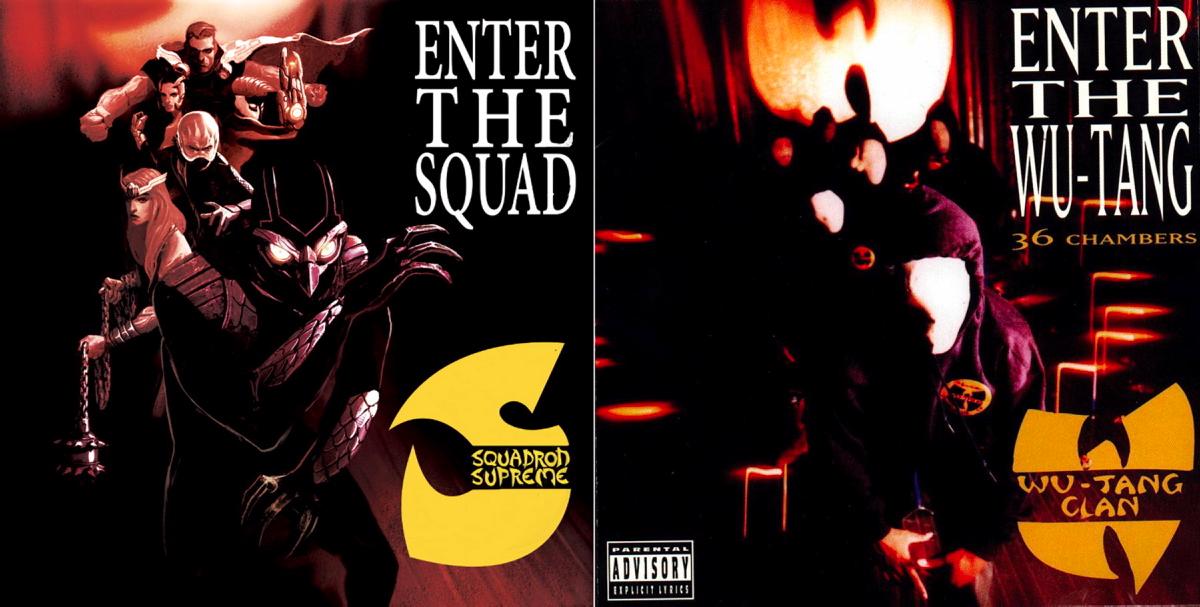
While lyricism, flow, and beats are the heart and soul behind the genre, hip-hop finds its foundation on top of a variety of archetypes. Some of the most prominent examples of these recurring themes include urban life, the influence of money, fame, and a variety of social issues.
However, just because these themes are common, doesn’t mean that emcees – both mainstream and underground – have held back about other interests that influence their music. A skateboarder in his free time, Lupe Fiasco twice rapped about his hobby in “Kick, Push” and “Kick, Push II.” The collective Wu-Tang Clan are known fans of martial arts movies. Budding designer Kanye West routinely references fashion within his music. The list goes on.
In addition to those niche interests, comic books and the characters within them have been frequently referenced by several artists over the years. However, unlike skateboarding and kung-fu flicks, rhymes about superheroes have become as common as any other recurring topic within hip-hop ever since the advent of the genre.

It’s also important to note that ever since Big Bank Hank rapped about Lois Lane in the Sugarhill Gang’s groundbreaking “Rapper’s Delight,” the relationship between hip-hop and comics has since become two-sided, as seen with a series of Marvel comic book covers that recreate several classic hip-hop albums with the publisher’s characters. That being said, the questions remains: why has superhero culture slowly-but-steadily weaved its way into the overall schema of hip-hop, and vice versa?
Some could argue that this is a result of the growing mainstream interest in comic book characters demonstrated within pop culture, culminating with the current stranglehold that superhero movies have both the domestic and international box offices. Others could say that it’s because both mediums maintain active fan-bases and created a symbiotic relationship as a way to create more profit.
Both are fair points, but let’s keep it 100: the true, long-standing connection between comics and hip-hop, like many of the themes mentioned before, is also a matter of archetypes.
Several emcees have picked up on the common threads between the two art forms, and have used them to illustrate their perspectives and ideologies in a more vivid, pop culture friendly manner. The most notable of these shared themes include the following:
Alter-egos
With the exception of a select few – like the Fantastic Four or former Green Lantern Guy Gardner – the true identities of several superheroes/villains are completely shrouded by alter-egos. In most cases, that serves as a way to both protect the character’s loved ones and to improve their public image – because after all, Erik Lensherr doesn’t have as much of an impact as “Magneto” does.
The same could be said for many emcees and their stage names. David Brothers of Comics Alliance wrote that the relationship between hip-hop/rap and superheroes is “all about building a larger than life persona and entertaining people. What better way to do that than to take on a heroic persona?”
He uses this claim to justify artists like David Banner, Jean Grae, and MF Doom borrowing aspects of famous super-personas and infusing into their stage presences and music. Like the Incredible Hulk, Banner is a large, imposing figure that raps with a booming, bass-heavy voice that rivals Lou Ferrigno’s iconic growl. Grae is more technical and cerebral, and Doom makes use of dark lyrical content while wearing a Dr. Doom-esque metal mask.
Power
Many Golden Era hip-hop classics were watermarked by braggadocio, where the emcee makes a series of outlandishly boastful claims to improve his or her image to either the listener or a subject of a specific song. The power bestowed onto superheroes have provided fodder to help emcees illustrate their point.
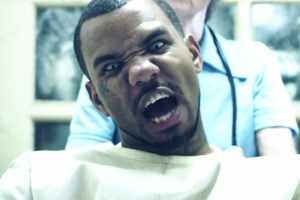
For instance, in “Martians vs. Goblins,” a collaboration with Tyler the Creator and Lil’ Wayne, Game rapped that he was “mad that Marvel overlooked me/cause Spider-Man and Hulk straight p***y.” Later in the track, he says the same thing about patriotic super-soldier Captain America, despite erroneously labeling the character as a DC Comics property – the greatest of all fandom sins.
Throughout their respective histories, all three characters have proven that they’re among the strongest superheroes ever created. Game is saying that he’s more powerful than all three combined – which not only would make him a formidable verbal sparring partner, but also, in essence, one of the greatest foes the Avengers would ever face in battle.
Another instance: The RZA once said that “there’s no place to hide when I step inside the room/Dr. Doom, prepare for the boom.” Despite not having any inherent abilities, Doom remains one of the most powerful comic book villains of all time (IGN ranked him at number three on their list). RZA himself has no superpowers to rely upon, but like Doom, has enough intellect and fury to prove that he “Ain’t Nuthin Ta F*** Wit.”
Status
Among the flurry of superhero name drops heard in “Kingdom Come,” multi-millionaire rapper and “business, man” Jay Z refers to himself as the “Bruce Wayne of the (rap) game.”
Wayne, the wealthy civilian identity of Batman, is arguably the most powerful man in Gotham that isn’t a member of the city’s over-arching criminal network. Due to his massive net worth and power coupling with Beyoncé, Jay’s comparison is far from hyperbole. Kanye and Big Sean have also made correlations between themselves and Wayne’s wealth, albeit under different circumstances.
While every hip-hip homage to a comic book hero is different from the other, one thing remains constant: the relationship between the two mediums is solid, and will only continue to strengthen from here on out. This is primarily true due to the writers and artists behind the many comic book publishing firms working tirelessly to diversify their superhero rosters.
It probably won’t be long before we start hearing tracks about Miles Morales and Riri Williams, as rappers, writers, and just plain ol’ regular folk all across the nation start doing more than just imagining what it would be like to walk (or fly) in these characters’ shoes: they’ll see their reflections in the pages.
What do you think? Leave a comment.
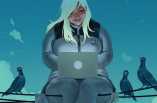
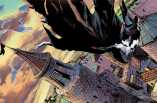
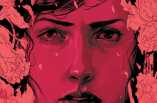
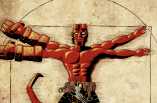
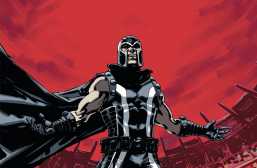
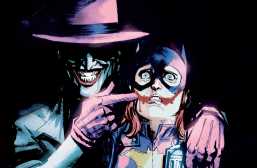
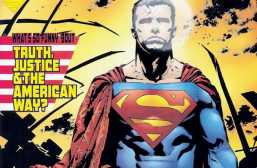
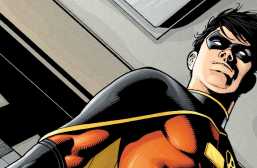
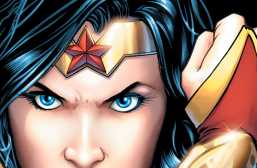
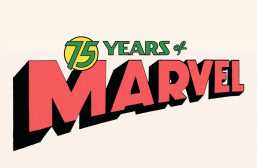
Banner is a social activist who has won the Visionary Award in recognition for his work in New Orleans after Hurricane Katrina. He already is a superhero.
Method Man is an avid Marvel Comic’s reader.
Johnny Blaze is a great character.
Wouldn’t John Brown make a great Superhero, slashing the throats of pro-slavery forces at Pottawatomie Creek, Kansas, saying stuff like ““I, John Brown, am now quite certain that the crimes of this guilty land will never be purged away, but with blood,” or “Let them hang me. I am worth inconceivably more to hang than for any other purpose,” and have his dripping blood form new John Browns? I wish I could draw.
Great article. Well done.
There is this MC who goes by Mr. Peter Parker!
Lavell Crump is certainly more like Banner than the Hulk.
I like Big Pun’s Punisher alterego.
Jamie Madrox from Twiztid.
Great article! Loved this!
Cool article, enjoyed this!
We are in the peak of this right now. Method Man from Wu-Tang rapping about Luke Cage, in universe, was wild and impactful to see. Great article!
A great piece of evidence of this phenomenon would be the music video for “Without Me” by Eminem. I will leave the link for you here. The music video is literally a moving comic book. Fantastic.
https://www.youtube.com/watch?v=YVkUvmDQ3HY
I have not been into comics or hip-hop culture though I grew up listening to it, only video games and manga
https://youtu.be/FS-CgEaAYLk
This is another song this one just about video games
2007
Most archetype go way over my head
Nice article, surprised you didn’t touch more on MF Doom and the entirety of Wu-Tang’s relationship with comics.
This is an awesome article! This does leave me with one question, though. Why would rappers and writers do everything they possibly can to exalt their names, while politicians and such do their best to appear as a “common” man/woman? They clearly have separate goals and functions in society, but why such a different approach? Maybe I will examine this further!
Drake can’t run for President because he was born in Canada no?
I too have noticed more and more rappers having comic books and video game references within their songs. Now every hip-hop or rap song I listen to I try to pick out the references and figure out the context of it whitin the song.
Kanye West is the most talented rapper, ‘Father Stretch My Hands’ one of the best lyrics.
C. N.
This article was really unique and interesting. I’ve noticed that rapper Ski Mask the slump god (as if his name wasn’t enough of an indicator) constantly references anime/comics, cartoons and pop-culture in his lyrics which is a trend which seems to be rising lately.
Just yesterday, I happened to read Neon future. It is a comic by Impact Theory, a university which aspires to bring a radical shift for the better in everyone’s mindset. I really liked the direction they are headed in and efforts being taken to ensure that they are successful.